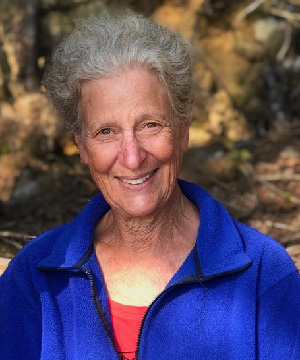- Who We Are
- Clinician Employment
- Publications
- Witness to Witness (W2W)
- El Premio Kugel & Zuroweste a la Justicia en la Salud
- Your Voice Matters: Photovoice Project
Kaethe
Kaethe Weingarten, Ph.D. (she/her) directs the Witness to Witness (W2W) Program for MCN. The goal of W2W is to help the helpers, primarily serving health care workers, attorneys and journalists working with vulnerable populations. She received her doctorate from Harvard University in 1974. She has taught at Wellesley College (1975-1979), Harvard Medical School (1981-2017), where she was an Associate Clinical Professor of Psychology in the Department of Psychiatry at Children’s Hospital Boston and then Cambridge Health Alliance, and at the Family Institute of Cambridge (1982-2009). She founded and directed the Program in Families, Trauma and Resilience at the Family Institute of Cambridge. Internationally, she has taught in Africa, Australia, Canada, Europe and New Zealand, where she was a Fullbright Specialist.
She has given over 300 presentations and been a keynote speaker at numerous local, national and international conferences. She serves on the editorial boards of five journals. In 2002 she was awarded the highest honor of the American Family Therapy Academy, the award for Distinguished Contribution to Family Theory and Practice. She has written about her work in six books (which she has authored or edited) and over 100 articles, chapters and essays. Her most recent book, Common Shock: Witnessing Violence Every Day- How We Are Harmed, How We Can Heal won the 2004 Nautilus Award for Social Change.
Dr. Weingarten’s work focuses on the development and dissemination of a witnessing model. One prong of the work is about the effects of witnessing violence and trauma in the context of domestic, inter-ethnic, racial, political and other forms of conflict. The other prong of the witnessing work is in the context of healthcare, illness and disability. Her work on reasonable hope has been widely cited.
In 2013, Dr. Weingarten and her husband moved to Berkeley, CA to be near their children and five grandchildren. There she resumed a dance and choreography practice she had let lapse for forty-five years. Since moving to Berkeley, she and her dance collaborator have been awarded five grants for their choreography with elder dancers applying a witnessing model in public spaces. In 2018 they performed at the Oakland Museum of California. In her spare time she enjoys hiking, baking and crocheting afghans.
Mary
Mary I. O'Connor is an anthropologist who has been conducting research with indigenous Mixtec people in the US and Mexico since 2001. She is currently planning a research project on access to health care by Mixtec migrants in California.
Luz Amparo
Rene
Dr. Rosenbaum, PHD economics, 1985, Notre Dame, is an Assoc Professor in community and economic development in the Department of Community Agriculture, Recreation and Resource Studies (CARRS) at Michigan State University. Dr Rosenbaum’s research interests are in fields of community economic development, community-based studies, farm labor child care issues, farm labor markets, farm worker health, and Latino and other minority economic issues.
Jeffrey
Chair and professor of Counseling Psychology at Philadelphia Biblical University. Licensed Psychologist. My educational background is in clinical, community, and developmental psychology. I have been involved in various aspects of clinical practice in a private practice, group practice, para-church organization and serving as a therapist-pastor in a large evangelical church. I have also served as a clinincal supervisor; director of counseling and clinical care for a children's home. I have served as an Adjunct Professor at several Seminaries teaching graduate students various aspects of counseling and began directing the counselor education program at Philadelpia Biblical University in 2005.
Paul
Michael
Michael Duke is a social anthropologist specializing in mixed method public health research pertaining to labor, immigration, and Latino/ Latin American populations. He has carried out research with farmworkers, and in farmworkers' home communities, on issues pertaining to substance use, HIV risk, and mental health.







